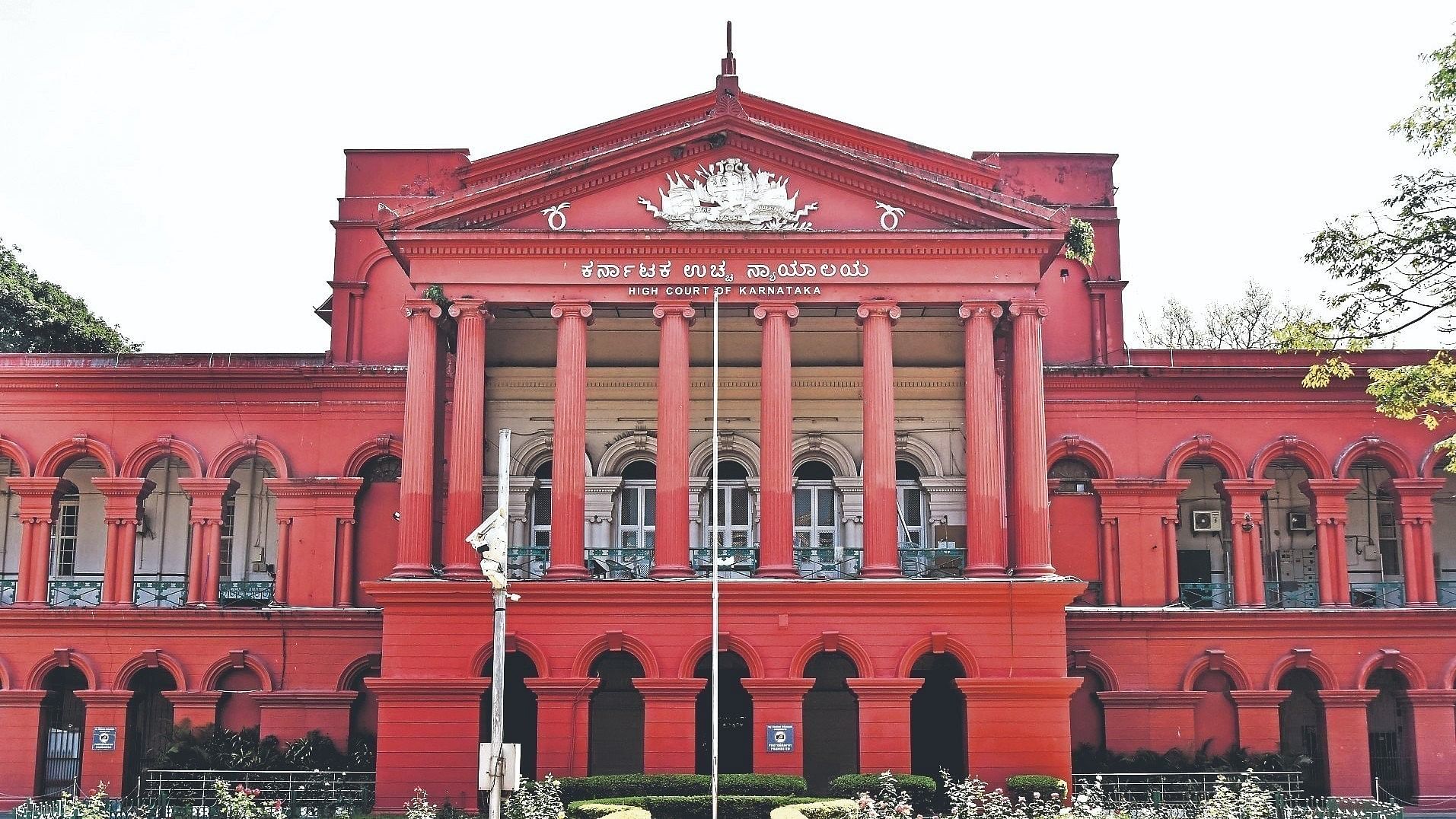
A view of the Karnataka High Court.
Credit: DH Photo
Bengaluru: The High Court of Karnataka has quashed disproportionate assets cases against nine government officials.
Justice Hemant Chandanagoudar allowed the petitions citing procedural error on the part of the now-defunct Anti-corruption Bureau (ACB) in the authorisation granted to investigate the case.
The petitions were filed by S Sathish, a Range Forest Officer in the Davangere district, and eight others, challenging the FIRs registered against them for offences under sections 13(1)(b) and 13(2) of the Prevention of Corruption (PC) Act on allegations of possessing assets disproportionate to their known sources of income. The proceedings pending were before the special courts at Davangere, Kolar, Mysuru and Bengaluru.
It was argued that the orders issued by the Superintendent of Police under Section 17 (2) of the PC Act, which authorises police inspectors/DySPs to conduct investigations, are uniform in content, except for the names of the accused and the Superintendent of Police. The petitioners stated that these orders lack any reasoning or evidence of thoughtful consideration regarding the decision to investigate the case.
Justice Chandanagoudar noted that when an FIR is mandatorily registered for an offence under section 13(1)(b), the police officer must submit the report to the Magistrate under Section 157 of the CrPC.
"Additionally, the police officer should forward it to the Superintendent of Police along with the source information report and other materials that form the basis for preparing a credible source report. This is to request an order of investigation under Section 17(2) of the Act. The right to register an FIR stands independently and is not affected by any statutory bar, specifically in cases involving offenses described in Section 13 (1) (b) of the 1988 Act. In these cases, the authorisation granted to investigate preceded the registration of FIRs and is thus, impermissible and is nullified," the court said.